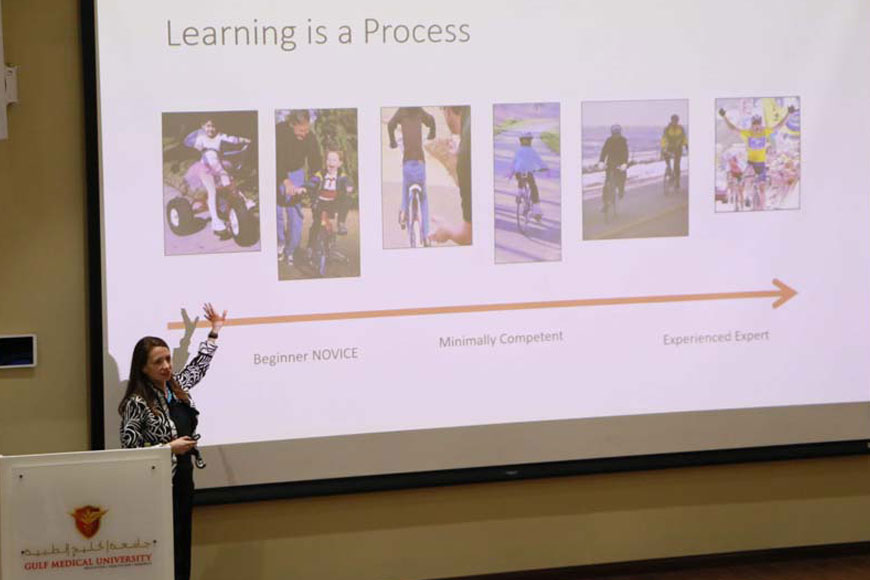
On March 2, 2019, Dr. Susan Vos, PharmD, FAPhA, Assistant Dean for Professional Education from University of Iowa College of Pharmacy (GMU College of Pharmacy’s MoU partner), presented a seminar titled “Tools and techniques for the Pharmacist preceptor’. Dr. Susan began her presentation saying, “Experiential education is critical for learning contemporary pharmacy practice so that students move from being passive learners to active agents in defining and solving problems in a healthcare setting”.
Explaining the ‘Learning Pyramid’ to the participants, largely the GMU College of Pharmacy’s Advanced Pharmacy Practice Experience (APPE) preceptors, Dr. Susan mentioned that learning can be achieved through various methods such as lecture, reading, visual aids, demonstration, practice by doing, immediate use of information and teaching others, among which the first three being ‘passive learning’ and the rest being ‘active learning’. She further added, “Learning techniques such as lecture, reading, audio visual and demonstration provide the least percentage of retention, while active techniques such as discussion groups, practice by doing, teaching others and immediate use of information give the highest percentages of retention”.

Dr. Susan emphasized on the four essential sequential skill components demonstrated by experiential learning preceptors: Direct instruction progressing to role modeling, followed by Coaching and then Facilitating. Recalling her personal experiences, Dr. Susan further highlighted the role of preceptors ‘before’, ‘during’ and ‘after’ specific rotations and mentioned the various methods of providing feedback to the candidates, without which, mistakes go uncorrected. She also stressed on the various methods of providing feedback: one-minute style, the Sandwich method and the three-step process of feedback. Finally, Dr. Susan concluded her session listing one-minute preceptor strategy and the common challenges during experiential training and the possible strategies to overcome them.

